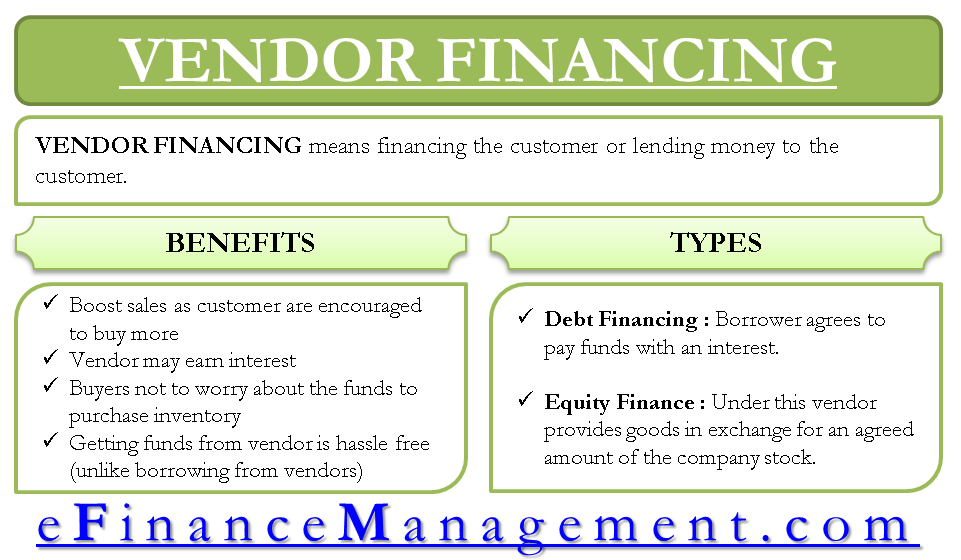Vendor credit for new businesses is a powerful tool that can provide much-needed financial breathing room during the early stages of operation. By offering extended payment terms, vendors essentially provide a short-term loan, allowing businesses to acquire essential inventory and supplies without upfront capital. This can be particularly beneficial for startups that may not have established credit lines or access to traditional financing options.
Vendor credit is more than just a convenient way to manage cash flow. It can also serve as a springboard for building valuable relationships with suppliers. By demonstrating responsible payment practices, new businesses can gain a reputation for reliability, opening doors to future opportunities and potential discounts.
What is Vendor Credit?

Vendor credit is a financing option that allows businesses to purchase goods or services from a supplier and pay for them later. It’s like an interest-free loan from the vendor, giving you time to generate revenue before making the full payment.
Think of it like a credit card, but instead of being issued by a bank, it’s offered by the business you’re buying from.
Common Vendor Credit Programs
Vendor credit programs are offered by various businesses, and they can vary depending on the industry and the vendor. Here are some common types:
- Net 30, Net 60, Net 90: These terms refer to the number of days you have to pay for the goods or services after receiving an invoice. For example, “Net 30” means you have 30 days to pay.
- Early Payment Discounts: Some vendors offer discounts if you pay your invoices early. For example, you might receive a 2% discount if you pay within 10 days.
- Deferred Payment Plans: These plans allow you to make payments over a longer period, often with interest charges. This can be beneficial for large purchases.
Advantages of Vendor Credit for New Businesses
Vendor credit can be a valuable resource for new businesses, offering several benefits:
- Improved Cash Flow: By delaying payments, vendor credit can help you manage your cash flow more effectively, especially during the early stages of your business when revenue might be limited.
- Access to Essential Resources: Vendor credit enables you to purchase the supplies and equipment you need to start and grow your business without having to pay upfront.
- Building Relationships with Vendors: Establishing vendor credit can strengthen your relationships with suppliers, making it easier to secure future purchases and negotiate better terms.
- Boosting Credit Score: Making timely payments on your vendor credit accounts can improve your credit score, which can be helpful when applying for loans or other forms of financing.
How Vendor Credit Benefits New Businesses
Vendor credit offers a lifeline to new businesses, enabling them to access essential resources without upfront costs. This flexible financing option empowers new businesses to navigate the initial challenges of establishing themselves in the market, fostering growth and sustainability.
Cash Flow Advantages of Using Vendor Credit
Vendor credit plays a crucial role in optimizing cash flow for new businesses, providing them with a vital financial cushion during their early stages.
- By extending payment terms, vendor credit allows new businesses to conserve their limited cash reserves, enabling them to invest in other critical areas like marketing, inventory, or hiring.
- New businesses can prioritize their cash flow by focusing on core operations and essential expenses, while vendor credit covers the cost of supplies and materials. This approach minimizes the pressure on cash flow, reducing the risk of financial strain and enabling businesses to operate more efficiently.
- By strategically managing their payment schedules, new businesses can maximize their cash flow, making it easier to meet financial obligations and achieve profitability goals. The flexibility offered by vendor credit provides valuable time for businesses to generate revenue and establish a solid financial foundation.
Building Relationships with Suppliers
Vendor credit can be instrumental in fostering strong and mutually beneficial relationships with suppliers.
- By demonstrating a commitment to timely payments, new businesses can earn the trust and confidence of suppliers, paving the way for potential discounts, extended payment terms, and preferential treatment.
- Building a positive track record with suppliers through consistent and timely payments can lead to increased access to resources, including priority access to inventory and supplies, particularly during periods of high demand or market fluctuations.
- By demonstrating their financial responsibility and reliability, new businesses can position themselves as valuable partners to suppliers, fostering a collaborative and mutually beneficial relationship that can contribute to long-term growth and success.
Accessing Inventory and Supplies Without Upfront Costs
Vendor credit provides new businesses with a valuable opportunity to access inventory and supplies without incurring upfront costs.
- By extending payment terms, vendor credit allows new businesses to acquire essential goods and materials without depleting their limited cash reserves, enabling them to focus on other key areas of their business.
- This flexibility can be particularly beneficial for new businesses with limited capital, as it allows them to acquire the necessary inventory and supplies to meet customer demand without facing significant financial constraints. This can help them establish a strong presence in the market and gain traction.
- By leveraging vendor credit, new businesses can avoid the need for costly loans or other forms of financing, which can be challenging to secure during the early stages of operation. This approach minimizes financial risks and allows businesses to manage their finances more effectively.
Types of Vendor Credit Programs
Vendor credit programs offer various payment terms and conditions, catering to different business needs. Understanding the different types of vendor credit programs available can help new businesses choose the option that best suits their cash flow and financial goals.
Types of Vendor Credit Programs, Vendor credit for new businesses
Vendor credit programs can be broadly categorized into three main types:
- Net Terms
- Revolving Credit
- Trade Credit
Each program type offers distinct payment terms and conditions, which are summarized in the table below:
| Program Type | Payment Terms | Interest Rates | Other Details |
|---|---|---|---|
| Net Terms | Typically offered as Net 30, Net 60, or Net 90, allowing businesses to pay for purchases within a specific timeframe. | Usually, no interest is charged if payments are made within the agreed-upon timeframe. However, late payments may incur penalties or interest charges. | Commonly used for short-term financing, especially for businesses with predictable cash flows. |
| Revolving Credit | Similar to a credit card, businesses can make purchases up to a pre-approved credit limit. Payments are made monthly, typically with a minimum payment due. | Interest rates are usually higher than net terms, as revolving credit offers more flexibility. | Provides businesses with continuous access to credit, allowing them to make purchases as needed. |
| Trade Credit | A form of credit extended by suppliers to their customers, typically with a set payment term, such as Net 30. | Interest rates may vary depending on the supplier and the terms of the agreement. | Often used by businesses with strong relationships with suppliers, allowing them to access credit without formal applications. |
Obtaining Vendor Credit for New Businesses
Securing vendor credit as a new business is crucial for establishing a strong financial foundation. While it may seem challenging initially, by strategically building your credit history and presenting a compelling application, you can increase your chances of securing favorable terms.
Building a Strong Credit History
Building a solid credit history for your new business is essential for attracting potential lenders and vendors. It demonstrates your financial responsibility and ability to manage debt effectively.
- Establish a Business Credit Profile: Begin by registering your business with major credit bureaus such as Dun & Bradstreet, Experian, and Equifax. This creates a separate credit file for your business, allowing lenders and vendors to assess your creditworthiness.
- Obtain a Business Credit Card: Apply for a business credit card and use it responsibly to build your credit history. Make timely payments and keep your credit utilization low.
- Pay Bills Promptly: Establish a system for tracking and paying all business bills on time. Late payments can negatively impact your credit score.
- Monitor Your Credit Report: Regularly check your business credit report for any errors or inconsistencies. Correcting any inaccuracies can improve your credit score.
Applying for Vendor Credit
Applying for vendor credit requires careful preparation and a well-structured application.
- Research Potential Vendors: Identify vendors that offer credit terms suitable for your business needs. Consider factors like credit limits, payment terms, and any associated fees.
- Complete the Application Thoroughly: Provide accurate and complete information on the application form. Include details about your business, financial history, and credit references.
- Submit Supporting Documentation: Be prepared to provide supporting documents, such as a business plan, financial statements, tax returns, and credit reports.
- Negotiate Credit Terms: If approved for vendor credit, be prepared to negotiate terms that align with your business needs. Consider factors like payment terms, credit limits, and interest rates.
Checklist of Documents
Having a checklist of required documents will ensure a smooth and efficient application process.
- Business Plan: A well-written business plan outlining your business objectives, market analysis, and financial projections.
- Financial Statements: Recent balance sheets, income statements, and cash flow statements demonstrating your business’s financial health.
- Tax Returns: Copies of recent tax returns, including federal, state, and local returns.
- Credit Reports: Obtain copies of your business credit reports from major credit bureaus.
- Bank Statements: Recent bank statements reflecting your business’s transaction history.
- Personal Guarantees: If required, provide personal guarantees from business owners or key personnel.
- References: Contact information for previous or current suppliers or lenders who can provide references.
Managing Vendor Credit Responsibly: Vendor Credit For New Businesses

Vendor credit, while beneficial, requires responsible management to avoid financial strain and maintain a positive business relationship with suppliers. Properly managing vendor credit ensures timely payments, fosters trust, and allows your business to access future credit opportunities.
Tracking Payments and Maintaining a Good Credit Score
Tracking payments and maintaining a good credit score are crucial for managing vendor credit effectively. By diligently monitoring your payment history and ensuring timely payments, you build a strong credit profile, which can be advantageous when seeking future credit.
- Utilize Payment Tracking Tools: Employ accounting software or dedicated payment tracking tools to automate the process of recording payments, due dates, and outstanding balances. These tools can send reminders, generate reports, and streamline the entire payment management process.
- Establish a Clear Payment Schedule: Create a detailed payment schedule that aligns with your cash flow and vendor payment terms. This helps you prioritize payments, avoid late fees, and maintain a consistent payment history.
- Review Credit Reports Regularly: Regularly check your business credit report for any discrepancies or errors. Correcting any inaccuracies promptly ensures a clear and accurate reflection of your creditworthiness.
Avoiding Late Payments and Potential Penalties
Late payments can lead to penalties, strained relationships with suppliers, and a negative impact on your credit score. Implementing strategies to avoid late payments is crucial for maintaining financial stability and fostering positive supplier relationships.
- Set Reminders: Set up calendar reminders or utilize payment tracking tools to alert you about upcoming payment due dates. This proactive approach ensures you never miss a deadline.
- Communicate with Vendors: If you anticipate a delay in payment, proactively communicate with your vendors. Explain the situation and propose a revised payment schedule. Open communication can prevent misunderstandings and maintain a good relationship.
- Negotiate Payment Terms: Explore opportunities to negotiate more favorable payment terms with your vendors, such as extended payment periods or early payment discounts. This can provide flexibility and reduce the risk of late payments.
Vendor Credit vs. Other Financing Options

For a new business, securing financing can be a crucial step in getting off the ground. While vendor credit offers a unique approach to funding, it’s essential to compare it with other traditional financing options to determine the best fit for your needs.
This section delves into the similarities and differences between vendor credit and other popular financing methods, highlighting their pros and cons. This will help you make an informed decision when choosing the right financing path for your new venture.
Comparison of Vendor Credit with Other Financing Options
Understanding the nuances of various financing options is crucial for new businesses. This section compares vendor credit with traditional financing options, such as business loans and lines of credit, outlining their strengths and weaknesses.
- Business Loans: These are fixed-sum loans with a predetermined repayment schedule and interest rate.
- Pros: Provides a lump sum for larger investments, fixed interest rates offer predictability, and loan terms can be tailored to specific needs.
- Cons: Requires a strong credit history and collateral, can have high interest rates, and the application process can be time-consuming.
- Lines of Credit: These are revolving credit facilities that allow businesses to borrow up to a specific limit, offering flexibility in accessing funds as needed.
- Pros: Provides access to funds on demand, flexible repayment options, and often lower interest rates than loans.
- Cons: Requires a good credit score, interest rates can fluctuate, and overspending can lead to high debt.
- Vendor Credit: This is a form of financing provided by suppliers, allowing businesses to purchase goods and services on credit and pay later.
- Pros: No upfront capital required, can help establish credit history, and often offers flexible payment terms.
- Cons: Limited funding available, may have higher interest rates than other options, and late payments can damage supplier relationships.
Situations Where Vendor Credit is Most Suitable
While vendor credit offers a valuable financing option, it’s not always the most suitable choice. This section highlights specific scenarios where vendor credit might be the most advantageous.
- Start-up Businesses: New businesses with limited credit history may find it challenging to secure traditional financing. Vendor credit offers an alternative to build credit and access essential supplies without upfront capital.
- Seasonal Businesses: Businesses experiencing seasonal fluctuations in demand can leverage vendor credit to manage cash flow effectively. They can purchase inventory during off-peak seasons and pay later when sales are higher.
- Small-scale Purchases: For smaller purchases, vendor credit can be a more convenient and efficient option than applying for a loan or line of credit. This eliminates the administrative burden associated with larger financing applications.
Conclusion
In the competitive landscape of the business world, vendor credit offers a valuable advantage for new ventures. It provides a lifeline for managing cash flow, fostering supplier relationships, and securing essential resources. By understanding the various types of vendor credit programs, navigating the application process, and managing payments responsibly, new businesses can harness this powerful tool to lay a solid foundation for success.
FAQ Overview
How can a new business improve its chances of getting approved for vendor credit?
Building a strong credit history is crucial. This includes paying bills on time, maintaining a good credit score, and establishing a track record of responsible financial management. Additionally, providing a detailed business plan, demonstrating a clear understanding of the market, and outlining a strong financial forecast can enhance your application.
What happens if a new business misses a vendor credit payment?
Late payments can negatively impact your credit score and damage your relationship with the vendor. It can also lead to late payment fees and potential penalties. It’s essential to prioritize payments and communicate any difficulties with your vendor to avoid these consequences.
Is vendor credit always the best financing option for a new business?
Vendor credit can be a valuable tool, but it’s not a one-size-fits-all solution. Other financing options, such as business loans or lines of credit, may be more suitable depending on the specific needs and financial situation of the business. It’s essential to carefully evaluate different financing options and choose the one that aligns best with your goals and circumstances.
 Norfolk Publications Publications ORG in Norfolk!
Norfolk Publications Publications ORG in Norfolk!

